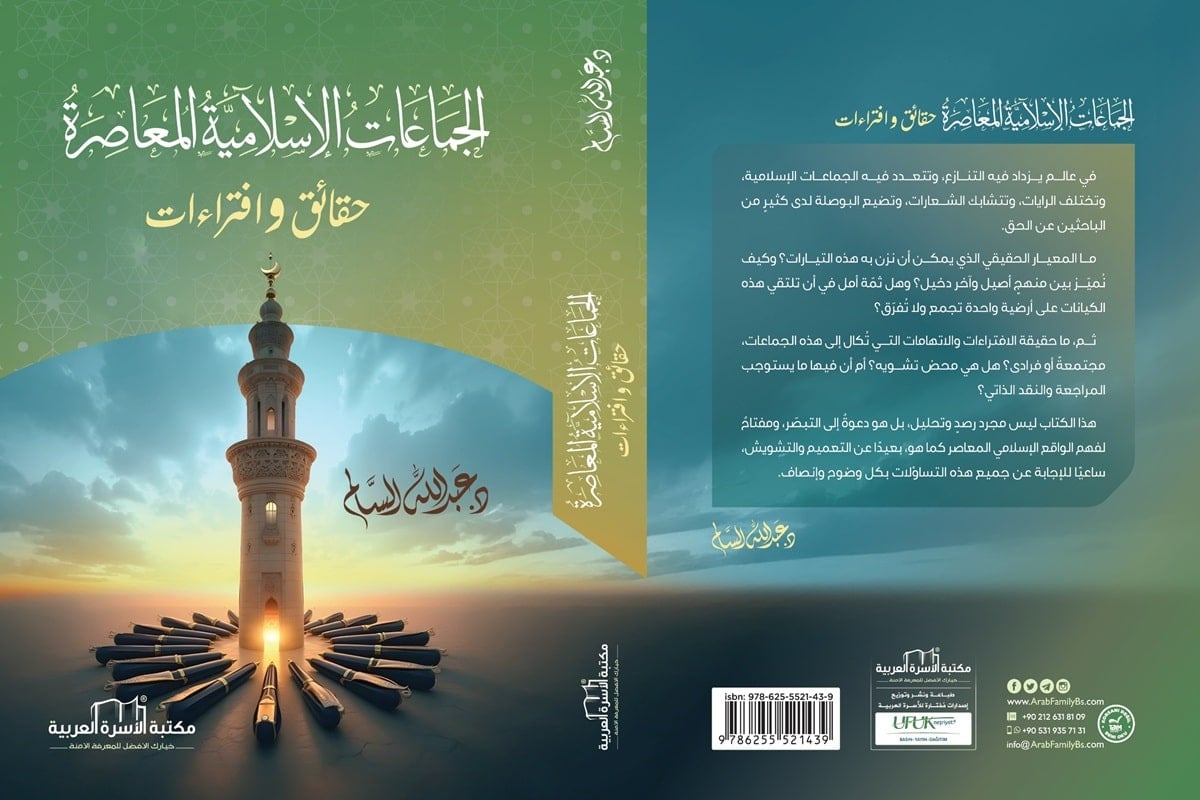
In my book Contemporary Islamic Movements: Facts and Fabrications, I addressed the charge of “insulting Islam,” often leveled at various contemporary Islamic groups regardless of their ideological orientations. I attempted to identify the sources that could be cited today in support of such an accusation, and found four: the Sharīʿah, reason, personal whims, and finally, political correctness—an idea propagated by America and Europe.
Political correctness, to be sure, is “correct” only from the American and European standpoint—more precisely, from the perspective of a dominant elite comprising businessmen, politicians, media figures, and celebrities. The personal tastes of this elite have effectively become the universal standards for all of humanity.
The Concept of Political Correctness
Political correctness is a form of verbal etiquette—refined diction and careful phraseology aimed at avoiding offense, especially when referring to ethnic, cultural, or religious groups.[1]
Alternatively, one could say: political correctness is a set of normative statements that shape the general outlook of institutional life and even social and daily interactions, as it presents itself as a representation of the highest culture or the most refined lifestyle.
These are ideologically charged statements, with an appeal that makes them usable in virtually any political, social, or rights-based debate. Anyone who deviates from or even expresses reservations about them risks being accused of backwardness, misogyny, racism, or “homophobia,” among other liberal-secular equivalents of excommunication—a term used by Sharif Murad.
Its Foundations and Objectives
From the above, it becomes clear that the standard by which political correctness judges right and wrong, good and evil, beautiful and ugly, is a mixture of positive law, Western customs, political trends, shifting tastes, and the hidden workings of conspiracies and commercial or political interests.
Of course, such a basis is never declared openly. Instead, we are told that the only foundation of political correctness is the pursuit of civility, public taste, heightened sensitivity toward others, and an overarching commitment to social responsibility and “rosy decency.”
According to the American Heritage Dictionary, the purpose of political correctness is to bring about social, political, and educational change aimed at redressing historical injustices suffered by certain groups due to their racial identities, political affiliations, class backgrounds, sexual orientations, or the oppression of women throughout history.
This sensitivity has extended to what is now referred to as “microaggressions”—offenses that may arise from comments or gestures, whether intentional or not, that are perceived as conveying negative messages toward marginalized groups.
The concern has grown so extreme that even a failure to explicitly highlight racial or sexual diversity is considered a form of microaggression. This has led to a noticeable rise in the presence of minority- and outcast-themed artworks in the nomination lists and award rosters of major artistic and literary competitions—at the expense of more qualitatively superior works, as observed by Muhammad Osama.[2]
The Extremism of Political Correctness
Even silence or neutrality is held suspect in the creed of political correctness. A person may be held accountable—by the media, the public, or political actors—for not denouncing or disavowing a person, idea, or group, or conversely, for failing to show explicit support or sympathy for them in accordance with the dictates of political correctness.
At times, political correctness becomes extreme, to the point where rhetorical etiquette becomes codified into criminal law. Canada, for instance, once considered legislating the mandatory use of preferred gender pronouns (he/she) when addressing transgender individuals, with penalties for non-compliance (though the current status of this proposal is unclear).
Political Correctness and Islam
The conflict between political correctness and Islam may be summarized as follows:
- At best, political correctness is a set of human moral judgments imported from foreign cultural traditions—specifically American and European liberal norms—which at times directly contradict Islamic rulings.
- These are transient and evolving human initiatives that aspire to be universal standards, akin to the fixed, divinely revealed rulings of Islam.
- Political correctness primarily serves specific segments of society—namely, feminists and those with deviant sexual orientations (the so-called LGBTQ+ community). Other marginalized groups—such as people of color, ethnic minorities, and the oppressed—are included secondarily and with less rigor, reducing the discourse to a kind of pretentious linguistic elegance, where mere politeness and tact are required, even if one does not truly believe in it.
- Political correctness serves as the soft arm of a broader, multi-pronged system that includes violent and coercive measures imposed on Muslim societies—ranging from overt military intervention to covert operations such as assassinations, sabotage, conspiracies, mercenary deployment, and the exploitation of brutal regimes in other states.
- It is an idealistic theory that defies practical application. There is no such thing as a universal “public taste”—a single expression or act that can simultaneously satisfy the oppressor and the oppressed, the just and the unjust, the strong and the weak. Truth is one and cannot be pluralized.
The Ugliness of Excessive Refinement
If the theory of political correctness were to be fully applied, it would become a form of rejected authoritarianism.
Nietzsche once said on this subject:
“A social structure without hierarchy is impossible. Refraining from violence, violation, and mutual exploitation—and equating the will of one with that of another—may be counted as moral virtues among individuals, provided they are of equal strength, value, and cooperative spirit. But once this principle is adopted on a broader scale and made the foundation of society, it reveals its true nature: a will to negate life, a principle of decay and degeneration.”[3]
Many Western intellectuals have denounced political correctness. Among them is the Bulgarian-French feminist philosopher Julia Kristeva, who labeled it “totalitarian.” Likewise, the Peruvian novelist and liberal politician Mario Vargas Llosa described it as “an enemy of freedoms because it rejects honesty and authenticity.” Many others have voiced similar criticisms.
Conclusion:
What is marketed as “public taste” may in fact be nothing more than bad taste—at best.
References:
[1] Muhammad Umar Janadi, “In Defense of Art: Political Correctness and the New Stalinism,” Manshoor, January 22, 2018.
[2] See: Muhammad Osama, “Say This, Not That: Political Correctness,” Idaat, April 1, 2019.
[3] Nietzsche, Beyond Good and Evil, p. 245.


